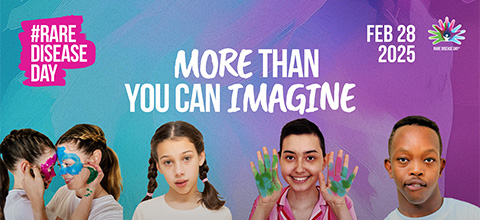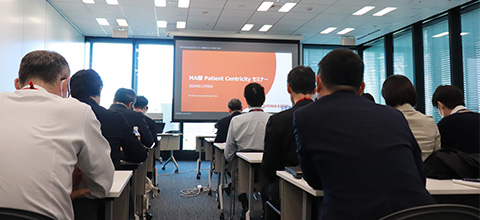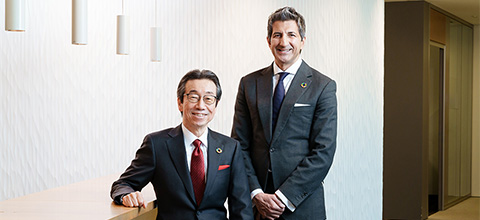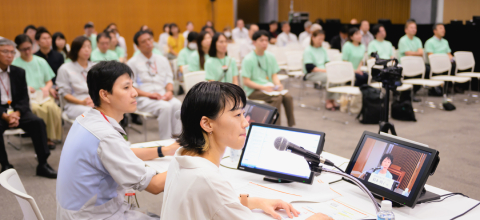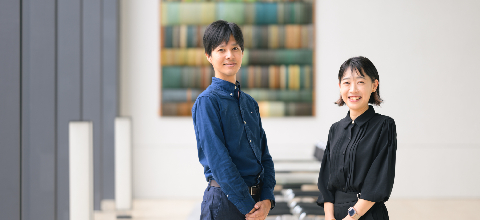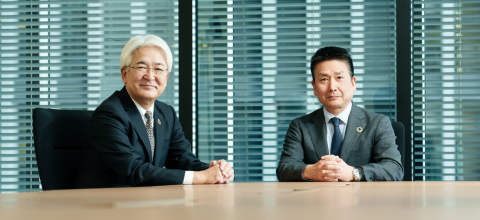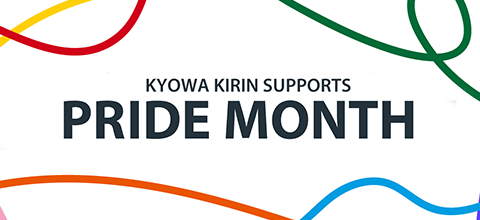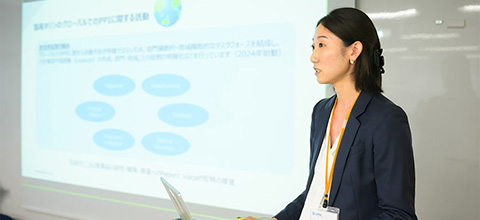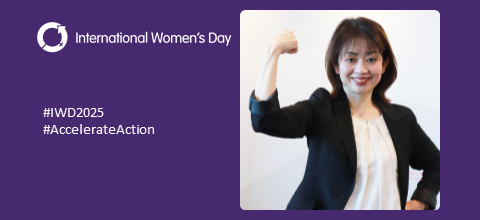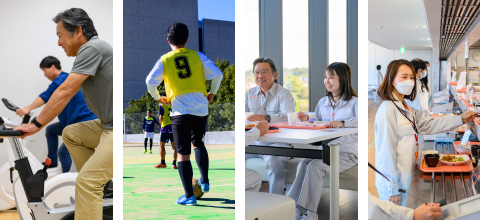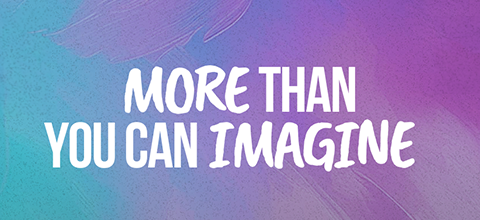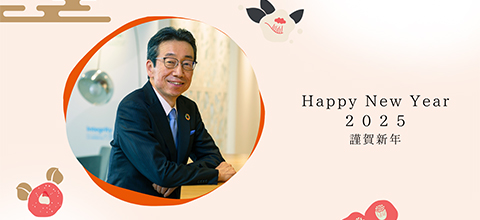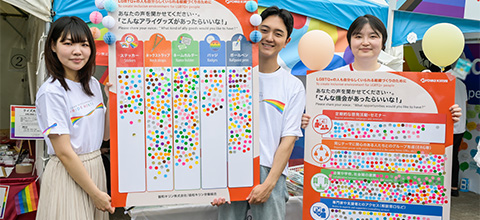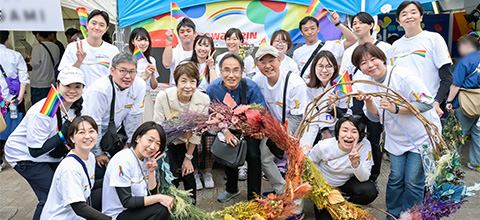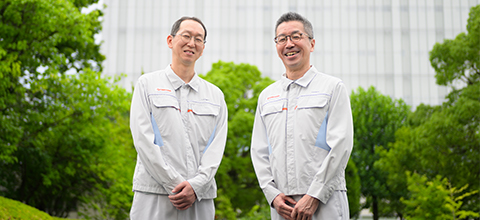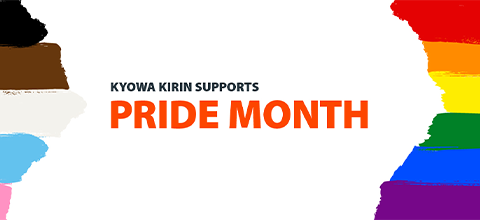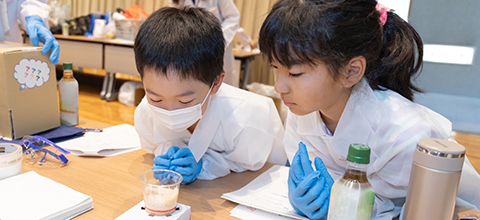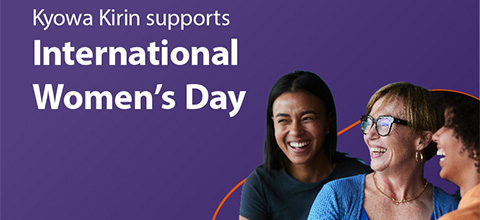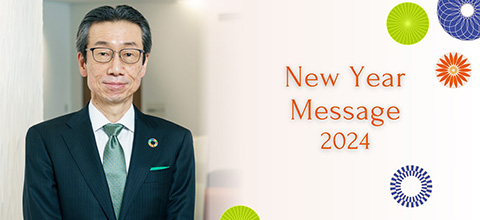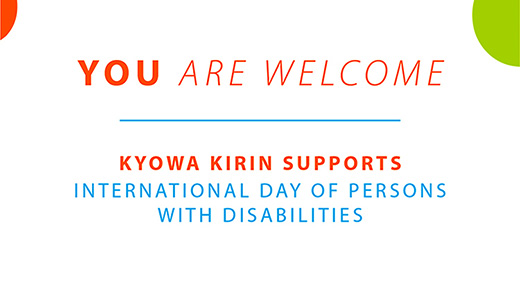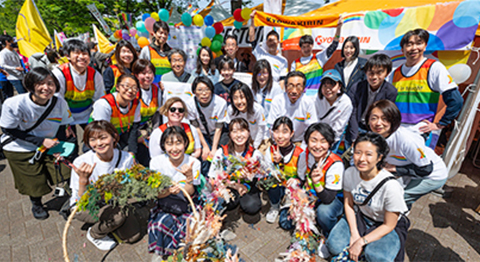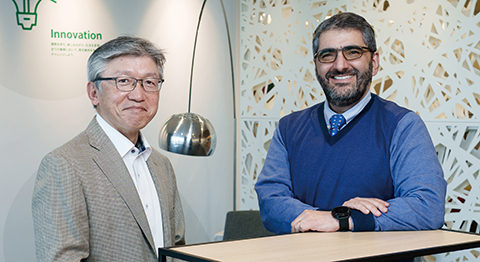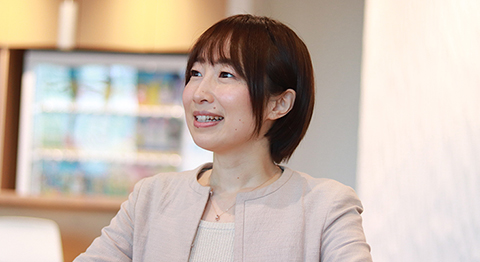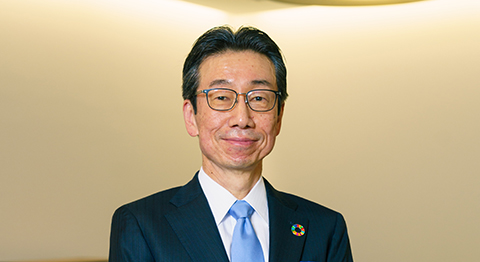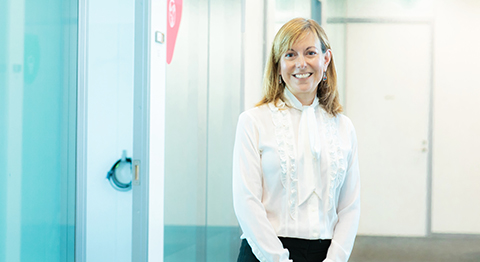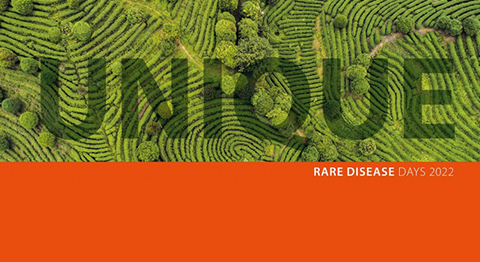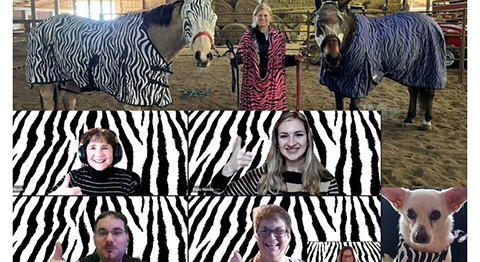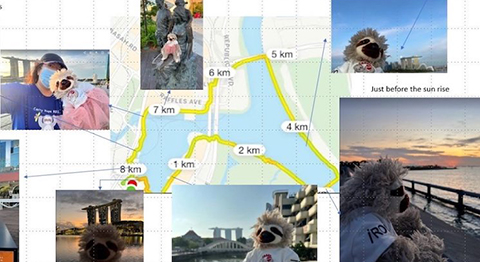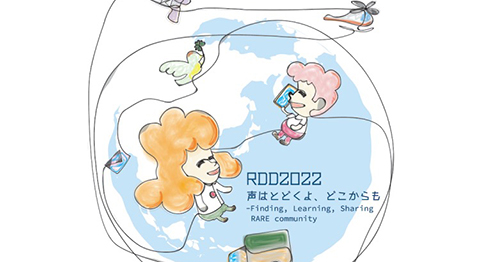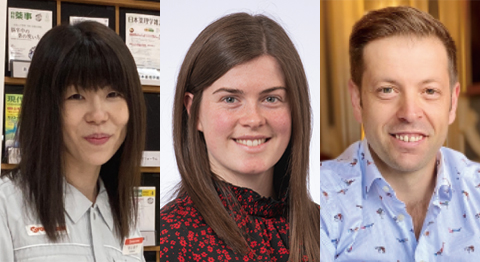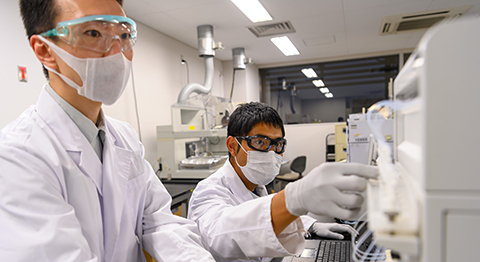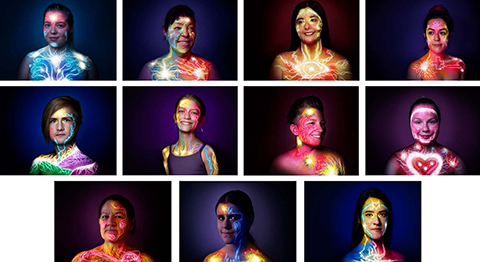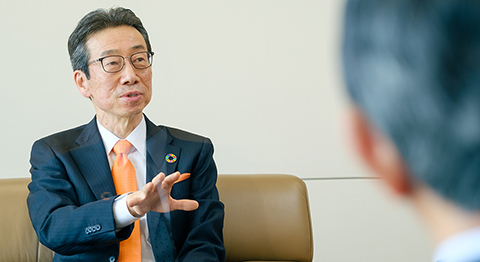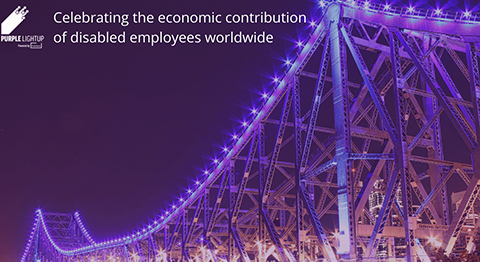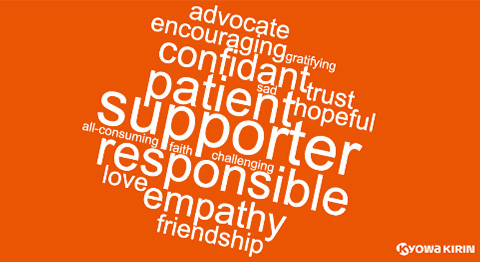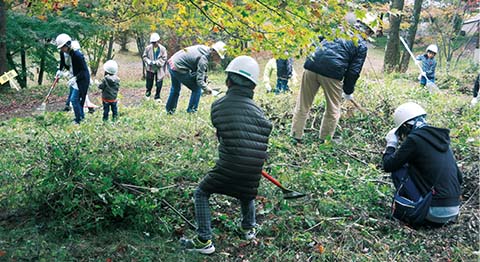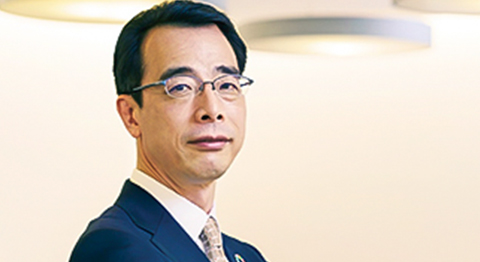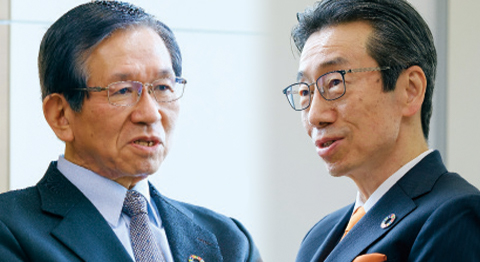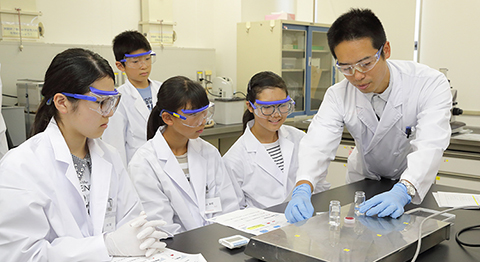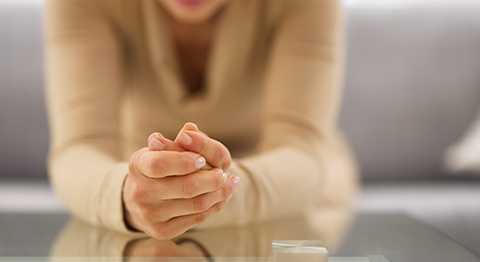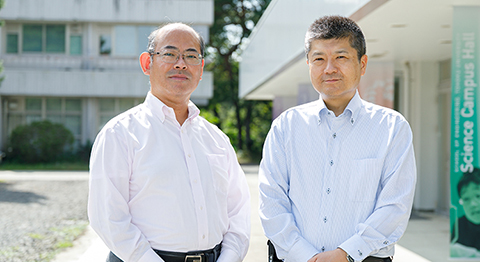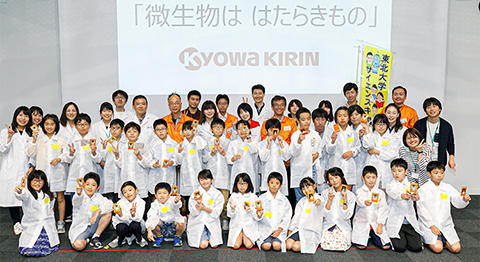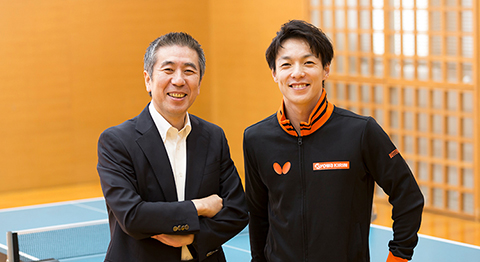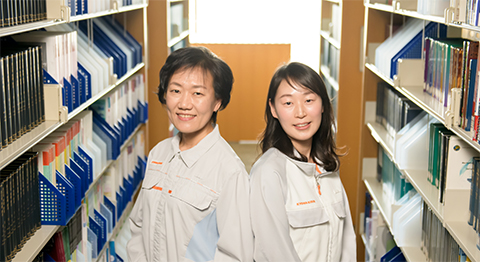Learn why the caregiver role is so important to Michelle-Ann Charlers, Senior Manager, Public Affairs in Kyowa Kirin North America. She shares her perspective for the National Family Caregivers Month (America).
Gratifying. Challenging. Encouraging. All-consuming. These are just some of the words that come to my mind to describe caregiving. National Family Caregivers Month is a great time to reflect on the incredible work of caregivers. It’s difficult to see someone you care for in pain and suffering. Caregivers want to help as much as possible to ease the burden a disease puts on the person we look after. Being a caregiver myself, this topic is near and dear to me.
The caregiver role is unique depending on the disease and the relationship to the patient. There are a lot of complexities to navigate. If the caregiver is a parent caring for their child, they’re making all the decisions; whether it’s selecting healthcare providers, making doctor’s appointments, or determining the course of treatment.
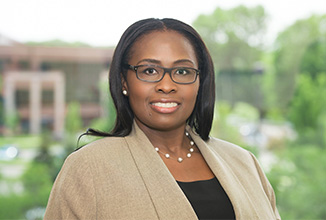
If the patient is an adult, caregiving needs a different approach and becomes a consultative process. The patient is the ultimate decisionmaker, and as a caregiver, you can provide encouragement and support as they work to find the best solution for themselves. At times, I envision the caregiver as an angel on the patient’s shoulder, whispering in their ear and trying to guide them through the ups and downs of life.
In my role as Senior Manager of Public Affairs at Kyowa Kirin, I hear stories from other caregivers, which serve as insights and inspiration for our advocacy collaborations. They also remind me that as a caregiver myself, I also need to seek support. The authentic interactions I’ve had with caregivers in my professional work and insights based on my own journey in this role have resulted in important lessons for other caregivers to keep in mind:
Speak up. A doctor’s visit can make the patient anxious, and they may forget certain things. Or they may be embarrassed and don’t want to admit their symptoms aren’t being well-managed. You can tell the doctor if their symptoms got worse or a medicine they take had bothersome side effects in case the patient doesn’t do it themselves.
Trust your gut. Even if the person you are caring for says they are fine, take action if you notice things are not okay and get answers at the doctor’s office or whatever you need to do. This can be hard if you’re not used to that, especially if the patient is a parent. But caregivers are not just there for the sunny days, they are also with the patient when it’s dark and rainy.
Ask for help. Some caregivers feel they have to do everything by themselves to be a good caregiver - and do so 24/7 without question or complaint. That’s not the case. Take advantage of resources that are out there that can help. For example, look for programs where the caregiver can bring the patient, and the patient does their own program, while the caregiver is getting some much needed downtime, connecting with other caregivers. You are not alone, you have a whole community around you.
Take some ME time. Caregiving may take time away from your own work, school or other activities you love. While it may be more challenging, it’s important for your mental and emotional health to do things that bring you joy. You are allowed to have fun free from guilt!
Stay positive. A diagnosis is not destiny. Work with the patient’s healthcare team and use other available resources, to develop a caregiving plan for the future. Knowing what to do at different stages of the disease journey can help reduce stress.
I’m very proud of the work Kyowa Kirin has done to support caregivers and consider it an honor to be involved in these efforts. When you start a project you never know what impact it’s going to have. So it’s gratifying to hear caregivers who attended Kyowa Kirin sponsored programs say they gave them some good ideas to help them plan for their future. Doing this type of work reminds me that on a personal level I also need to take advantage of caregiver resources that are out there. Seeking advice and asking for help is nothing to be ashamed of. It can make us all better caregivers and individuals.
Learn more about Kyowa Kirin North America, please visit https://kkna.kyowakirin.com/![]() or https://www.linkedin.com/company/kyowa-kirin-inc.--u.s./
or https://www.linkedin.com/company/kyowa-kirin-inc.--u.s./![]()
